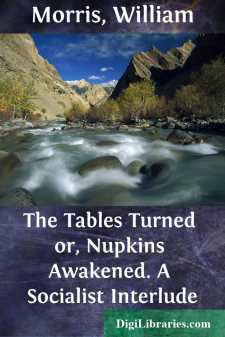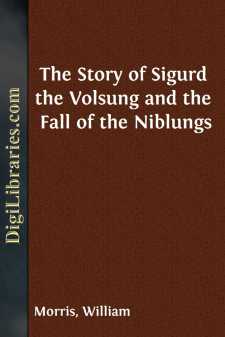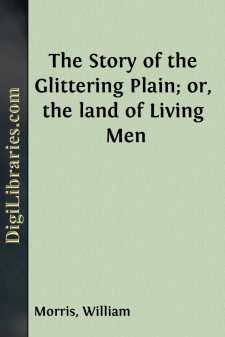Categories
- Antiques & Collectibles 13
- Architecture 36
- Art 48
- Bibles 22
- Biography & Autobiography 813
- Body, Mind & Spirit 142
- Business & Economics 28
- Children's Books 15
- Children's Fiction 12
- Computers 4
- Cooking 94
- Crafts & Hobbies 4
- Drama 346
- Education 46
- Family & Relationships 57
- Fiction 11828
- Games 19
- Gardening 17
- Health & Fitness 34
- History 1377
- House & Home 1
- Humor 147
- Juvenile Fiction 1873
- Juvenile Nonfiction 202
- Language Arts & Disciplines 88
- Law 16
- Literary Collections 686
- Literary Criticism 179
- Mathematics 13
- Medical 41
- Music 40
- Nature 179
- Non-Classifiable 1768
- Performing Arts 7
- Periodicals 1453
- Philosophy 64
- Photography 2
- Poetry 896
- Political Science 203
- Psychology 42
- Reference 154
- Religion 513
- Science 126
- Self-Help 84
- Social Science 81
- Sports & Recreation 34
- Study Aids 3
- Technology & Engineering 59
- Transportation 23
- Travel 463
- True Crime 29
The World of Romance being Contributions to The Oxford and Cambridge Magazine, 1856
by: William Morris
Description:
Excerpt
THE STORY OF THE UNKNOWN CHURCH
I was the master-mason of a church that was built more than six hundred years ago; it is now two hundred years since that church vanished from the face of the earth; it was destroyed utterly,—no fragment of it was left; not even the great pillars that bore up the tower at the cross, where the choir used to join the nave. No one knows now even where it stood, only in this very autumn-tide, if you knew the place, you would see the heaps made by the earth-covered ruins heaving the yellow corn into glorious waves, so that the place where my church used to be is as beautiful now as when it stood in all its splendour. I do not remember very much about the land where my church was; I have quite forgotten the name of it, but I know it was very beautiful, and even now, while I am thinking of it, comes a flood of old memories, and I almost seem to see it again,—that old beautiful land! only dimly do I see it in spring and summer and winter, but I see it in autumn-tide clearly now; yes, clearer, clearer, oh! so bright and glorious! yet it was beautiful too in spring, when the brown earth began to grow green: beautiful in summer, when the blue sky looked so much bluer, if you could hem a piece of it in between the new white carving; beautiful in the solemn starry nights, so solemn that it almost reached agony—the awe and joy one had in their great beauty. But of all these beautiful times, I remember the whole only of autumn-tide; the others come in bits to me; I can think only of parts of them, but all of autumn; and of all days and nights in autumn, I remember one more particularly. That autumn day the church was nearly finished and the monks, for whom we were building the church, and the people, who lived in the town hard by, crowded round us oftentimes to watch us carving.
Now the great Church, and the buildings of the Abbey where the monks lived, were about three miles from the town, and the town stood on a hill overlooking the rich autumn country: it was girt about with great walls that had overhanging battlements, and towers at certain places all along the walls, and often we could see from the churchyard or the Abbey garden, the flash of helmets and spears, and the dim shadowy waving of banners, as the knights and lords and men-at-arms passed to and fro along the battlements; and we could see too in the town the three spires of the three churches; and the spire of the Cathedral, which was the tallest of the three, was gilt all over with gold, and always at night-time a great lamp shone from it that hung in the spire midway between the roof of the church and the cross at the top of the spire. The Abbey where we built the Church was not girt by stone walls, but by a circle of poplar trees, and whenever a wind passed over them, were it ever so little a breath, it set them all a-ripple; and when the wind was high, they bowed and swayed very low, and the wind, as it lifted the leaves, and showed their silvery white sides, or as again in the lulls of it, it let them drop, kept on changing the trees from green to white, and white to green; moreover, through the boughs and trunks of the poplars, we caught glimpses of the great golden corn sea, waving, waving, waving for leagues and leagues; and among the corn grew burning scarlet poppies, and blue corn-flowers; and the corn-flowers were so blue, that they gleamed, and seemed to burn with a steady light, as they grew beside the poppies among the gold of the wheat. Through the corn sea ran a blue river, and always green meadows and lines of tall poplars followed its windings. The old Church had been burned, and that was the reason why the monks caused me to build the new one; the buildings of the Abbey were built at the same time as the burned-down Church, more than a hundred years before I was born, and they were on the north side of the Church, and joined to it by a cloister of round arches, and in the midst of the cloister was a lawn, and in the midst of that lawn, a fountain of marble, carved round about with flowers and strange beasts, and at the edge of the lawn, near the round arches, were a great many sun-flowers that were all in blossom on that autumn day, and up many of the pillars of the cloister crept passion-flowers and roses. Then farther from the Church, and past the cloister and its buildings, were many detached buildings, and a great garden round them, all within the circle of the poplar trees; in the garden were trellises covered over with roses, and convolvolus, and the great-leaved fiery nasturium; and specially all along by the poplar trees were there trellises, but on these grew nothing but deep crimson roses; the hollyhocks too were all out in blossom at that time, great spires of pink, and orange, and red, and white, with their soft, downy leaves. I said that nothing grew on the trellises by the poplars but crimson roses, but I was not quite right, for in many places the wild flowers had crept into the garden from without; lush green briony, with green-white blossoms, that grows so fast, one could almost think that we see it grow, and deadly nightshade, La bella donna, O!...












